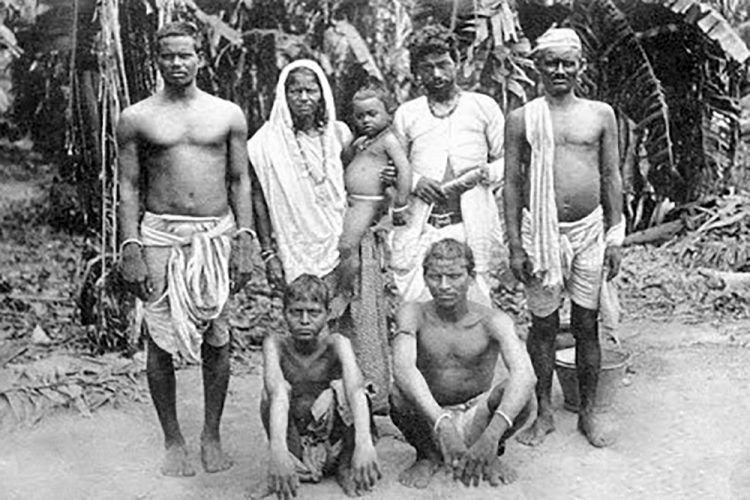Indian Arrival Day (continued )

The Indians left their country for different reasons but among them was the promise of good wages and living conditions. Unlike the African slave trade, the proportion of males to females was legally fixed. Although not slaves, the conditions they experienced were deplorable. Wage rates were not what were promised, but were fixed by an Immigration Act of 1859 and seemed never to have been changed. In 1874, the Indian government complained that they had not been getting the rate of wages promised. In 1882, a request was made for increased wages for newly arrived ‘indentures’, but the Legislative Council was not prepared to recommend any increase. It argued that the 20 cents per day being paid was supplemented by the provision grounds, allowing them to have a sufficient supply of vegetables and to be able to buy fish, rice, and other necessities. They warned that increased wages would have to be passed on to those already located here and also to the creole labourers, obviously playing off one group of labourers against the others.
Interestingly, on October 7, 1882, a number of Indians walked off the estates to lodge complaints about reduced wages and increased tasks. The ring leaders were arrested, being accused of going beyond the two-mile limit. The Lieutenant Governor had admitted earlier that the police were in the habit of arresting Indians without passes. The Protector of Immigrants from St. Lucia, after a visit of inspection, wrote a damning report. He pointed to the unsatisfactory state of dwellings and of the indentures themselves who were “weakened in body and depressed in spirits”. He pointed in particular to the Rabacca, Waterloo, Lot 14, and Mt. Wynne estates. The Lieutenant Governor tried to refute the conclusions of the report on a number of issues, arguing that the depression of spirits mentioned existed only in the imagination of the author. He only conceded to the lamentable situation at the Sans Souci estate, about which he ordered a ‘searching enquiry’. It was admitted earlier that the so-called estate ‘hospitals’ were “poor apologies for hospitals”. What was interesting about all of this was that the updated Regulations of 1878 had outlined the expected conditions related to housing, medical attention, and food rationing under which the immigrants were to be treated, including the type of dwellings, medical attention expected and the food rations. These were never seriously implemented.
Later the promise of back passages became problematic. By 1891, all Indian immigrants were out of indenture and by the turn of the century were moving into villages, after purchasing lands particularly at Calder, Akers, Yambou and Richland Park. The 1911 Census drew attention to their naturalisation, a product of mixed marriages and a creolisation process facilitated by the churches and schools. Christian names were being adopted. Of a total population, 376, 273 had been born in the colony. The majority continued to be involved in agriculture as peasants and labourers, but some had become shopkeepers, others, carters with their own donkey carts. They had thrown in their lot with the country and over the years had contributed in different areas. In 1951, Evans Morgan was elected as the youngest parliamentarian as part of the Charles /Joshua Eight Army of Liberation.
Dr Adrian Fraser is a social commentator and historian









